|
|
|
|
|
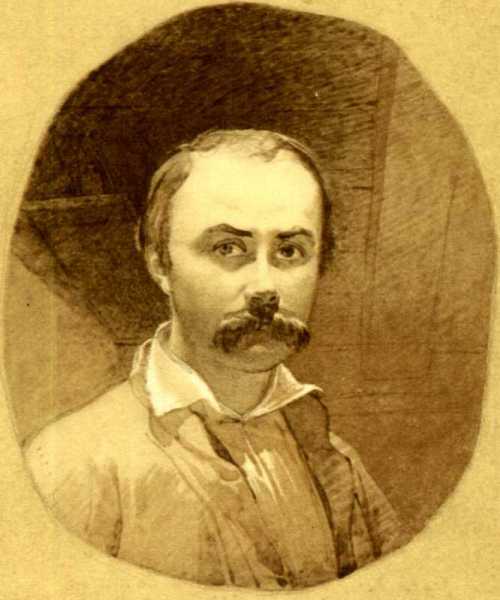 Shevchenko in Orenburg (November 1849). Sepia, paper. Shevchenko in Orenburg (November 1849). Sepia, paper.
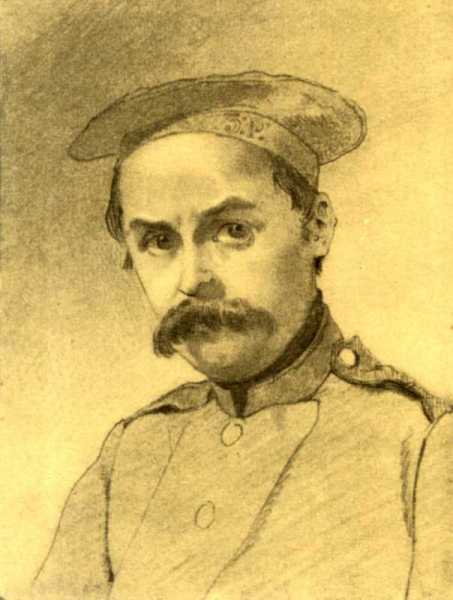 Shevchenko in the Uniform Shevchenko in the Uniform
of the 3rd Company (3 P on the cap)
of the Fifth Batalion. Ors'k Fortress
(June - December 1847). Pencil, paper.
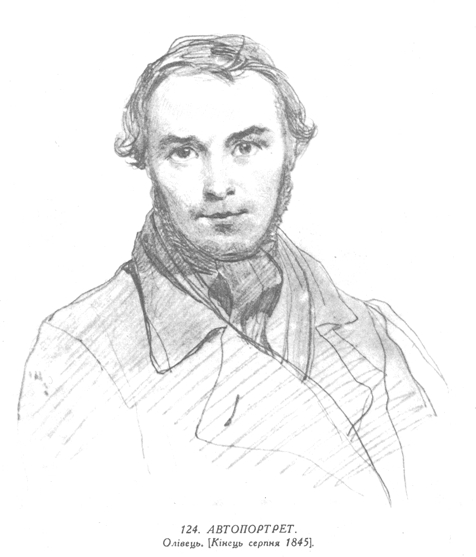 An unusually energetic and dignified Shevchenko. Potoky village, near Kyiv An unusually energetic and dignified Shevchenko. Potoky village, near Kyiv
(August 1845). Pencil, paper.
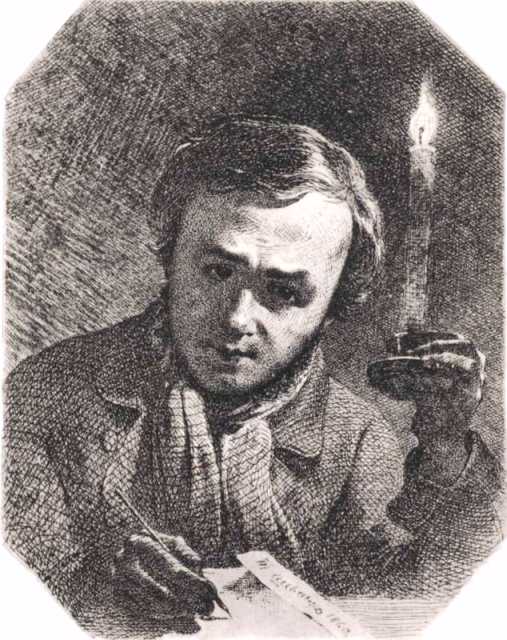 Shevchenko by candlelight (june 1860). Aquatint etching, paper. Shevchenko by candlelight (june 1860). Aquatint etching, paper.
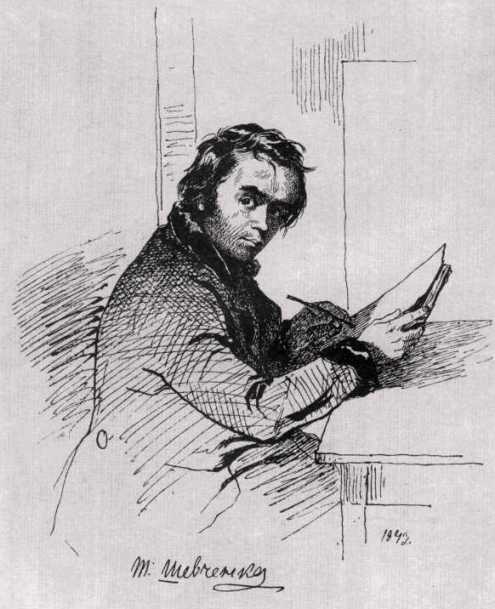 Shevchenko in Iahotyn. This drawing was a gift to Varvara Repnina (november 1843). Pen and ink on the paper. Shevchenko in Iahotyn. This drawing was a gift to Varvara Repnina (november 1843). Pen and ink on the paper.
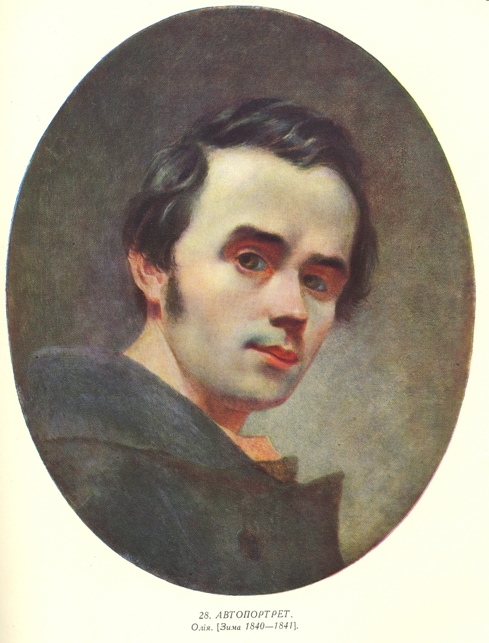 Shevchenko's earliest self-portrait. A student of the Academy of Art in S.- Petersburg (winter 1840 - 1841). Oil on canvas. Shevchenko's earliest self-portrait. A student of the Academy of Art in S.- Petersburg (winter 1840 - 1841). Oil on canvas.
 Taras Shevchenko painted many self-portraits and also depicted himself as a figure in a number of other works. These self-portraits and self-depictions offer another view of Shevchenko's creativity, of his projected self-image, and of his personality. Taras Shevchenko painted many self-portraits and also depicted himself as a figure in a number of other works. These self-portraits and self-depictions offer another view of Shevchenko's creativity, of his projected self-image, and of his personality.
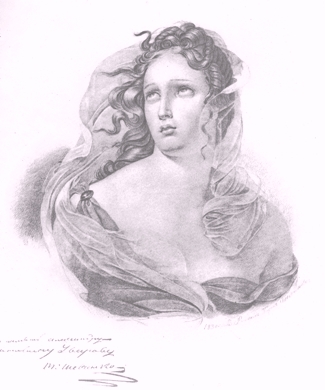 Shevchenko's artistic heritage for us is not less valuable than his poetry. Do not forget that natural gift of drawing was the very first awakened in him and brought him out of the abyss of slavery in artistic elite. His artworks are diverse. Already during his lifetime Shevchenko had a well-deserved honor as outstanding portrait painter. He also performed a large series of landscapes, architectural sketches (including ukrainian antiquity), book illustrations. He was the first of Ukrainian who mastered the etching technique and created in it a number of famous compositions. Our web publication is intended to show the world the great ukrainian artist – Taras Shevchenko. Shevchenko's artistic heritage for us is not less valuable than his poetry. Do not forget that natural gift of drawing was the very first awakened in him and brought him out of the abyss of slavery in artistic elite. His artworks are diverse. Already during his lifetime Shevchenko had a well-deserved honor as outstanding portrait painter. He also performed a large series of landscapes, architectural sketches (including ukrainian antiquity), book illustrations. He was the first of Ukrainian who mastered the etching technique and created in it a number of famous compositions. Our web publication is intended to show the world the great ukrainian artist – Taras Shevchenko.
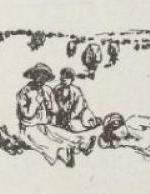 Taras Shevchenko's poem "Hamaleia" Taras Shevchenko's poem "Hamaleia"
"Ghamalija" / "Oj nema, nema ni vitru, ni khvyli iz nashoji Ukrajiny!"
("Гамалія" / «Ой нема, нема ні вітру, ні хвилі із нашої України!")
1842.
Translated from Ukrainian by Alexander Jardine Hunter
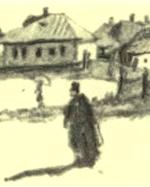 Taras Shevchenko Taras Shevchenko
"O my thoughts, my heartfelt thoughts"
"Dumy moji, dumy moji, / Lykho meni z vamy!"
("Думи мої, думи мої, / Лихо мені з вами!")
1840, St.- Petersburg (C.- Петербург)
Translated by Vera Rich
 Taras Shevchenko' poem Taras Shevchenko' poem
"Prychynna" / "Reve ta stohne Dnipr shyrokyi"
("Причинна" / "Реве та стогне Дніпр широкий")
1837, S.- Petersburg, (C. - Петербург)
Translated by Vera Rich.
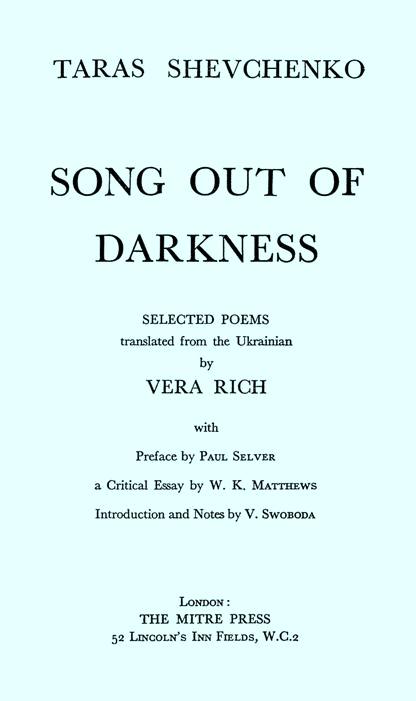
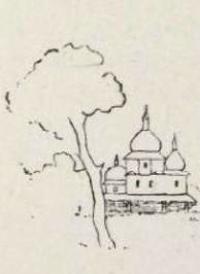 Taras Shevchenko's poem "The Monk" Taras Shevchenko's poem "The Monk"
"Chernecj" / "U Kyjevi na Podoli Bulo kolysj..."
("Чернець" / "У Києві на Подолі Було колись...")
1848, Orsjka fortecja (Орська фортеця)
Translated by Alexander Jardine Hunter
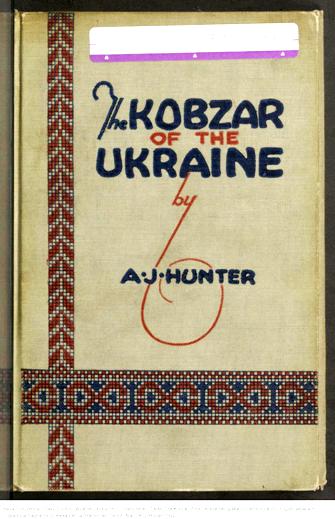
"The Kobzar of the Ukraine". Being select Poems of Taras Shevchenko. Done into English Verse with Biographical Fragments by Alexander Jardine Hunter.
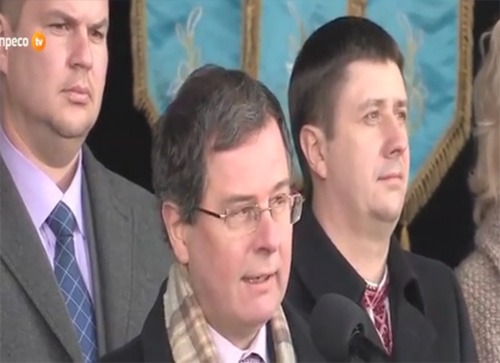 (News archive: 09 March 2014) (News archive: 09 March 2014)
The British Council joined representatives of France, Japan, Germany and Poland in a cultural celebration of the poetry of Taras Shevchenko in front of a packed audience at the Maidan in Kyiv on Sunday 09 March. British Council Director, Martin Dowle, read an English translation of “If it does not touch me” (Мені однаково, чи буду), translated by one of the key translators of Taras Shevchenko’s work, Vera Rich, in 1961.
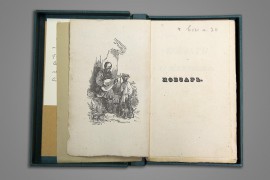
On February 12 (old style) 1840 the Russian censor in St Petersburg, Petr Korsakov (1790 - 1844) gave permission to publish a small book of poetry by an unknown Ukrainian poet, Taras Shevchenko.
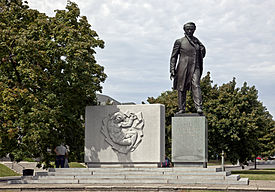 From news archive: 29 June 2014 From news archive: 29 June 2014
Fifty years ago, on June 27, 1964, the American Capital inaugurated a monument to Taras Hryhorovych Shevchenko, outstanding Ukrainian poet, philosopher, artist and outstanding personality, who entered the global pantheon of cultural heritage.
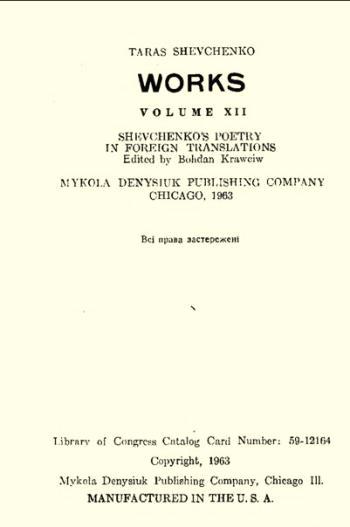 "Taras Shevchenko. Works. Volume 12. Shevchenko's poetry in translations." "Taras Shevchenko. Works. Volume 12. Shevchenko's poetry in translations."
Title page.
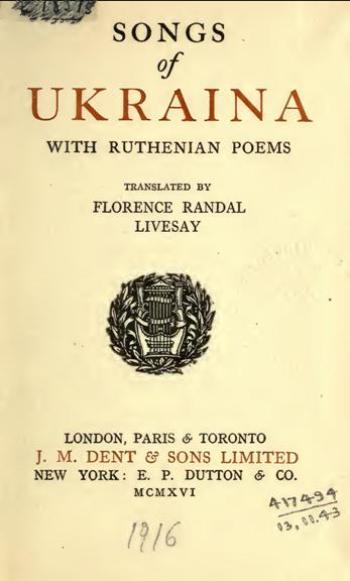 "Songs of Ukraina, with Ruthenian poems", London, Paris, Toronto, New York, 1916. Translated by Florence Randal Livesay. Title page of the book. "Songs of Ukraina, with Ruthenian poems", London, Paris, Toronto, New York, 1916. Translated by Florence Randal Livesay. Title page of the book.
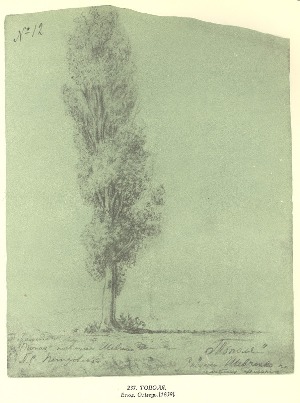
Taras Shevchenko, "Poplar", 1839Taras Shevchenko
"Topolja" / "Po dibrovi viter vyje"
("Тополя" / "По діброві вітер виє" )
1839, S.- Petersburg, (C. - Петербург)
|
|
|
|
|
|
 Shevchenko in Orenburg (November 1849). Sepia, paper.
Shevchenko in Orenburg (November 1849). Sepia, paper. Shevchenko in the Uniform
Shevchenko in the Uniform An unusually energetic and dignified Shevchenko. Potoky village, near Kyiv
An unusually energetic and dignified Shevchenko. Potoky village, near Kyiv Shevchenko by candlelight (june 1860). Aquatint etching, paper.
Shevchenko by candlelight (june 1860). Aquatint etching, paper.



 Taras Shevchenko
Taras Shevchenko

 Taras Shevchenko's poem "The Monk"
Taras Shevchenko's poem "The Monk"
 (News archive: 09 March 2014)
(News archive: 09 March 2014)

 "Taras Shevchenko. Works. Volume 12. Shevchenko's poetry in translations."
"Taras Shevchenko. Works. Volume 12. Shevchenko's poetry in translations." "Songs of Ukraina, with Ruthenian poems", London, Paris, Toronto, New York, 1916. Translated by Florence Randal Livesay. Title page of the book.
"Songs of Ukraina, with Ruthenian poems", London, Paris, Toronto, New York, 1916. Translated by Florence Randal Livesay. Title page of the book.



